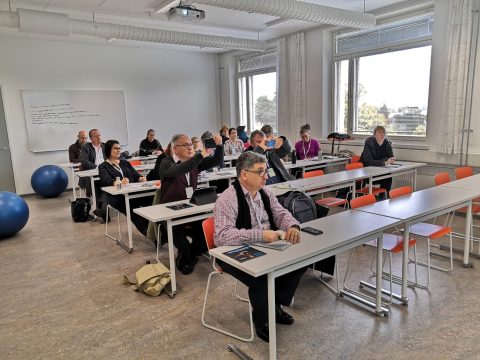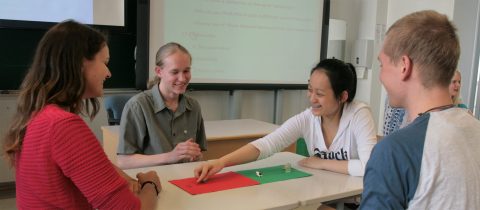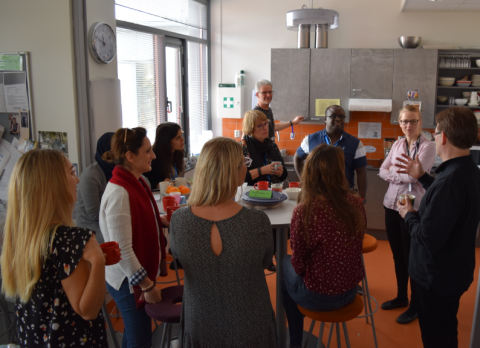01.11.2019, Learning Scoop
Finnish principals developing operational culture at school
“Culture is defined as the learned beliefs, values, rules, norms, symbols, and traditions that a group of people shares. The group that shares these qualities makes them unique“ (Northouse 2007, Leadership theory and practice).
 According to the national core curriculum in Finland, the school culture plays a key role in implementing comprehensive basic education and thus always affects the quality of school work experienced by the pupils (National core curriculum for basic education 2016).
According to the national core curriculum in Finland, the school culture plays a key role in implementing comprehensive basic education and thus always affects the quality of school work experienced by the pupils (National core curriculum for basic education 2016).
The operational culture is an entity which consists of several components:
- interpretation of the norms that direct the work and the goals of activities
- leadership and the organization, planning, implementation and evaluation of work
- competence and development of the community
- pedagogy and professionalism
- interaction, atmosphere, everyday practices and learning environments.
(National core curriculum for basic education 2016.)
 Changing the present operational culture may be the most important and at the same time the hardest task when dealing with the development of the school. Organizations tend to be conservative, traditional by nature and usually they encourage to use strategies that strengthen the present state of issues.
Changing the present operational culture may be the most important and at the same time the hardest task when dealing with the development of the school. Organizations tend to be conservative, traditional by nature and usually they encourage to use strategies that strengthen the present state of issues.
Furthermore, teachers are very different according to their age, experience, mindset, education and preferences. How to fit them smoothly together in the same school? Creating a shared operational culture becomes the key issue.
Developing operational culture is about creating shared, constructive meanings. People create meanings, either consciously or subconsciously, about different occurrences around them. When these meanings are mutual and mainly positive by nature, it becomes easier for the individuals to act and collaborate together. Shared knowledge will rise from the network of interpretations which is based on many personal things but mainly on the present culture. The longer people immerse themselves in the culture, the more invisible it becomes. To put it simple: The more positive, open and flexible operational culture, the more constructive meanings will be selected.
Principals have an important role in creating and developing an operational culture at school. Principals can, through their own behaviour and actions, influence the school’s operational culture. Even though operational culture can be a complex phenomenon and concept, it can be affected in many simple ways. As a principal, these are some of the practical actions worth paying attention to:
- Being an example
- Noticing individuals and listening
- Reacting to teachers’ initiatives and taking action
- Fostering openness

Tommi Roininen
Assistant Principal
Hakkari Junior High School (grades 7–9)
Lempäälä, Finland












Follow us: